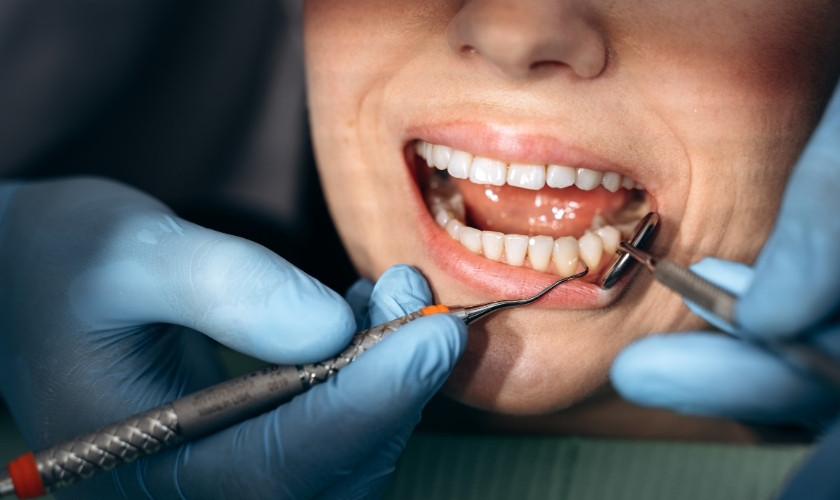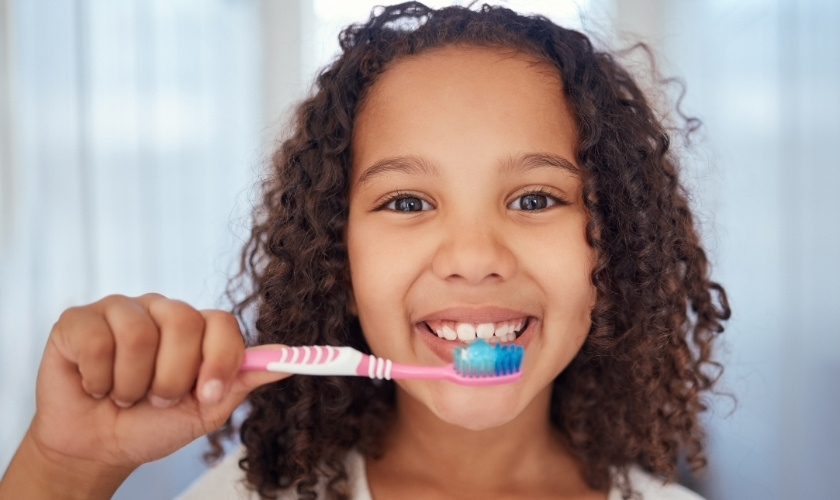
Imagine waking up with a sore jaw and feeling like you’ve just been in an intense boxing match with your teeth. For millions of people around the world, this is an all too familiar scenario. Teeth grinding, or bruxism, is a common dental issue that affects individuals of all ages, but what causes this involuntary and often harmful behavior? From stress and anxiety to sleep disorders and dental misalignments, your dentist in Fort Worth will uncover the intricate web of factors that drive people to clench and grind their teeth.
Stress
Stress has become an inseparable part of modern living, and it seems like we’re all carrying a bit more of it every day. Surprisingly, this mounting stress often finds its way into our sleep, manifesting as teeth-grinding during the night.
As we continuously face various stressors, our bodies respond by tensing up, and this tension can unconsciously transfer to our jaws while we sleep. Unresolved stress and anxiety are major contributors to bruxism, leaving us with painful consequences in the morning.
Try implementing some stress management techniques to reduce stress levels and lower the risk of habitual grinding.
Sleep Disorders
Teeth grinding and sleep disorders often go hand in hand. Sleep apnea, a condition where breathing repeatedly stops and starts during sleep, is particularly linked to bruxism. When the airway becomes partially blocked, it can lead to micro-awakenings, causing the individual to clench their jaw and grind their teeth.
Treatments from your dentist in Fort Worth, such as a custom nightguard, can create a protective barrier between your upper and lower teeth.
Bite Problems
Sometimes, the alignment of our teeth, a misaligned bite, or dental issues can be the underlying cause of bruxism. When teeth don’t fit together correctly, it creates an imbalance in the jaw, prompting the body to try and correct this misalignment by grinding the teeth.
Dental conditions such as missing teeth or poorly fitting dental appliances can also trigger bruxism. Your dentist may recommend orthodontics or other restorative dentistry options to help correct your bite.
Subconscious Habits
Beyond stress and dental factors, teeth grinding can also be influenced by subconscious habits. Nail-biting, chewing on pens, or even clenching the jaw during periods of concentration can train the muscles to repeat these actions during sleep.
Understanding these habits can lead to better self-awareness and potential behavior modifications to curb bruxism.
Teeth grinding, or bruxism, can be a challenging condition to deal with, causing discomfort, pain, and potential dental issues. If you find yourself grappling with teeth grinding, it’s essential to schedule an appointment with your dentist in Fort Worth to identify the root cause. Managing stress, practicing relaxation techniques, and maintaining good sleep hygiene can all reduce bruxism episodes.
Why do adults grind their teeth at night?
Teeth grinding at night, also known as sleep bruxism, often occurs unconsciously during sleep. For adults, common causes include stress, anxiety, and sleep disorders such as obstructive sleep apnea. Lifestyle factors like excessive caffeine or alcohol intake and the use of certain medications—particularly antidepressants—can also contribute. Some individuals may grind their teeth due to an abnormal bite or crooked teeth. Nighttime teeth grinding can lead to worn-down teeth, jaw pain, headaches, and disrupted sleep. Since it typically happens during sleep, many adults are unaware of the habit until symptoms appear or a dentist notices the signs. Managing stress, improving sleep hygiene, and using custom night guards can help reduce or prevent nocturnal teeth grinding.
Why do people grind their teeth frequently?
Frequent teeth grinding, or bruxism, can result from a combination of physical, psychological, and lifestyle factors. High stress and anxiety levels are major triggers, causing people to unconsciously clench or grind their teeth throughout the day or night. Other factors include sleep disorders, misaligned teeth, or side effects of medications like selective serotonin reuptake inhibitors (SSRIs). Habitual use of stimulants—such as caffeine, tobacco, or recreational drugs—can also increase the likelihood of bruxism. In some cases, it’s a learned behavior or coping mechanism. If left untreated, frequent grinding can damage teeth, strain jaw muscles, and cause chronic discomfort. Diagnosis typically involves dental exams and stress evaluation, with treatment options including night guards, stress management techniques, and dental corrections.




